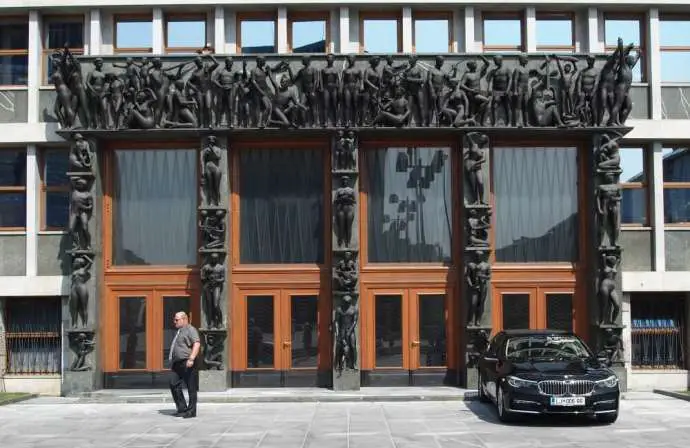STA, 20 November 2020 - A renewed attempt by the opposition to ban the extraction of natural gas through hydraulic fracturing in Slovenia, was rejected in a 39:40 vote in parliament on Friday. While some coalition members agree with a ban, they want to wait for what was described as comprehensive solution being drawn up by the Infrastructure Ministry.
While the first motion to amend the mining act with a ban on what is also known as fracking, tabled by the opposition Left, was rejected at committee level last month, the renewed attempt, coming from the four left-leaning opposition parties, was rendered unfit for further reading at Friday's plenary.
Thursday's discussion saw the Left's Nataša Sukič highlight the dispute with British company Ascent Resources, which she said has been pushing to introduce fracking at the Petišovci gas field in the north-east of Slovenia for decades.
Ascent Resources has begun procedures for an investor dispute against Slovenia over the decision of Slovenian authorities that an environmental impact assessment is needed before any permits can be issued for hydraulic fracturing.
While Sukič spoke of a "dirty technology that is also proving abroad as destructive for the environment and the health of local populations", the government disagrees with the proposed changes, which also stipulate that already issued permits and mining rights and applications for them would need to be "coordinated" with the ban as well.
Infrastructure Ministry State Secretary Blaž Košorok argued that the motion was not worded appropriately and did not take into account the consequences of interference with obtained rights to use hydraulic fracturing to extract hydrocarbons, for which an environmental impact assessment needs to be conducted.
Franci Kepa of the senior coalition Democrats (SDS) said strategies needed to be thought through carefully also because of responsibilities toward potential investors in this field.
"The Infrastructure Ministry has been drawing up changes to the mining act for some time...It is not good to change the act just because of a single issue; instead, a comprehensive and complex approach is necessary," Kepa said.
A similar view was taken by other coalition parties, although the Pensioners' Party (DeSUS) and the Modern Centre Party (SMC) expressed support for a ban in principle, while Mihael Prevc of New Slovenia (NSi) argued hydraulic fracturing should be discussed by experts and not politics.
Gregor Perič of the SMC spoke of "a strange case of amnesia" on the part of those forgetting that the mining act and Slovenia's mining strategy consider hydrocarbons as resources of strategic importance. He added the changes proposed by the opposition brought more questions than answers.
All opposition parties begged to differ, rejecting the systemic or comprehensive solution argument and highlighting the right of the inhabitants of Petišovci to live in a healthy environment.
"We find it nonsensical for such a good legislative proposal to be rejected merely on the basis of the excuse we are waiting for a systemic of comprehensive solution," Soniboj Knežak of the SocDems said.
"The company wanting to frack in Petišovci comes from the UK, where fracking is banned. It has also been banned in France, Germany, Ireland as well as Bulgaria, and it is high time that this invasive and dangerous method...also be banned in Slovenia," Knežak added.






